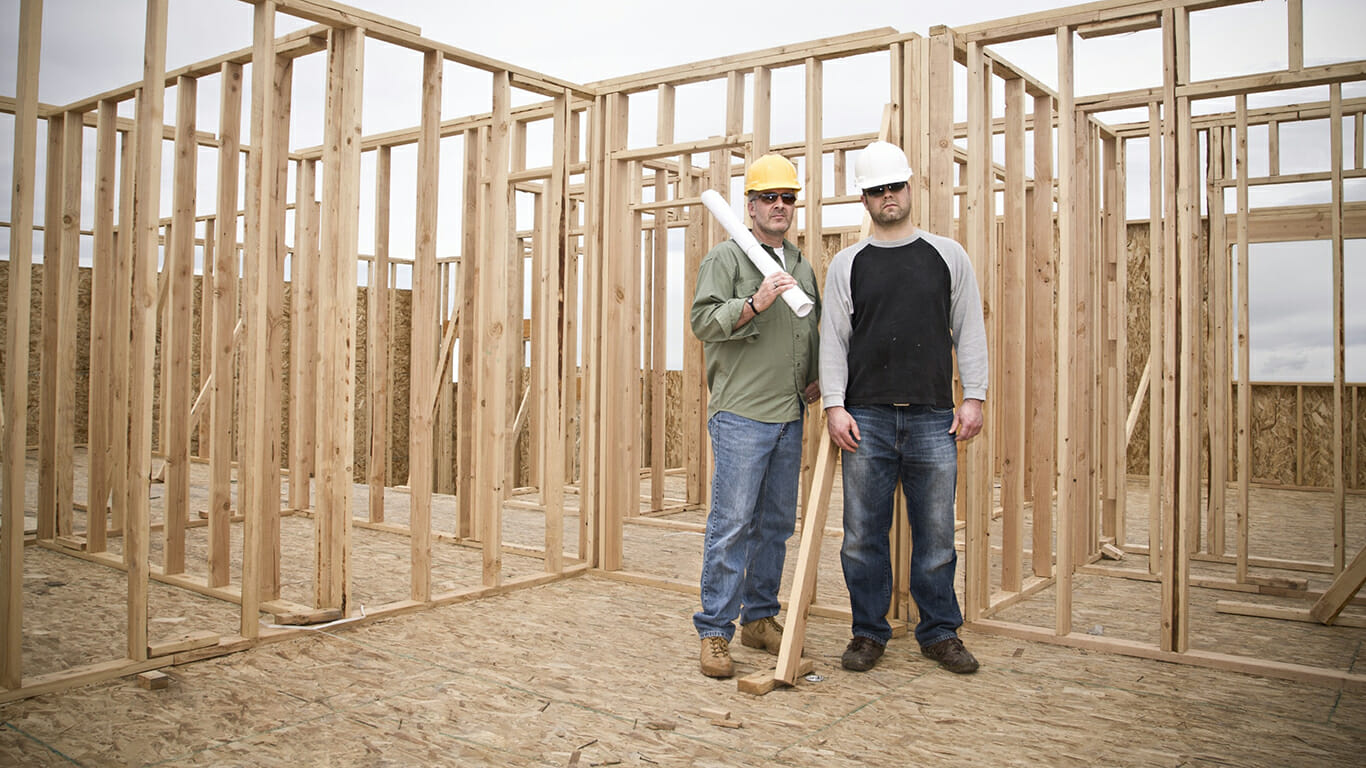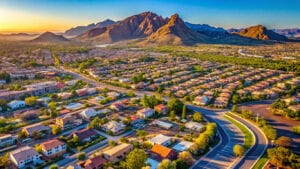Arizona will no longer grant certifications for new housing developments within Metro Phoenix as groundwater supplies rapidly disappear, both CNN and the New York Times reported Thursday. In what many experts say could be a glimpse of the future, state officials say there’s not enough water for Arizona construction projects that have already been approved.
MORE INFORMATION: 10 hottest neighborhoods for home sales in Arizona
“This impact of climate change will prevent housing supply from catching up with demand,” said Zillow Senior Economist Orphe Divounguy. “Before and during the pandemic, the number of homes for rent or for sale in the Phoenix area was down 21% — and that’s probably worse now. This collision between housing and climate will raise housing costs and present leaders with tough decisions to ensure their communities can continue to grow in the face of climate change.”
CNN reported that a new study showed the groundwater supporting the Phoenix area likely can’t meet additional development demand in the coming century. At a Thursday news conference, Gov. Katie Hobbs and the state’s top water officials outlined the results of a study looking at groundwater demand within the Phoenix Metro area, which is regulated by a state law that tries to ensure Arizona housing developments, businesses and farms are not using more groundwater than is being replaced.
The change does not affect existing homeowners, and officials stressed that major cities including Phoenix have ample supplies and can continue to grow. Hobbs also noted that about 80,000 unbuilt lots already are approved and can go forward.
“If we do nothing, we would face a 4% shortfall in groundwater supply over the next 100 years,” Hobbs said. The study found that around 4% of the area’s demand for groundwater, close to 4.9 million acre-feet, cannot be met over the next 100 years under current conditions — a huge shortage that will have significant implications for housing developments in the coming years in the booming Metro Phoenix area, which has led the nation in population growth.
To help the state stay on track, Hobbs said $40 million in repurposed federal COVID-19 recovery funds will go toward a new Arizona Department of Water Resources-administered fund, the Arizona Water Resiliency Fund, to promote groundwater conservation and create more sustainable water supplies.
The decision by state officials very likely means the beginning of the end to the explosive development that has made Metro Phoenix area the fastest growing region in the country. State officials did say they would not revoke permits that have already been issued and is instead counting on water conservation measures and alternative sources to produce the water necessary for approved projects.
Maricopa County gets more than half its water supply from groundwater. Most of the rest comes from rivers and aquaducts as well as recycled wastewater. In practical terms, groundwater is a finite resource; it can take thousands of years or longer to be replenished.
The announcement of a groundwater shortage means Arizona would no longer give developers in areas of Maricopa County new permits to construct homes that rely on wells for water.
“Housing affordability will be a challenge moving forward,” said Spencer Kamps, vice president of legislative affairs for the Home Builders Association of Central Arizona, an industry group. He noted that even as the state limits home construction, commercial buildings, factories and other kinds of development can continue.
The change will act as a signal to developers and Arizona construction companies, Sarah Porter, director of the Kyl Center for Water Policy at Arizona State University, told the New York Times. “We see the horizon for the end of sprawl.”
State officials said the announcement wouldn’t impact currently approved developments. However, developers that are seeking to build new developments will have to demonstrate they can provide an assured water supply for 100 years using water from a source that is not local groundwater.




